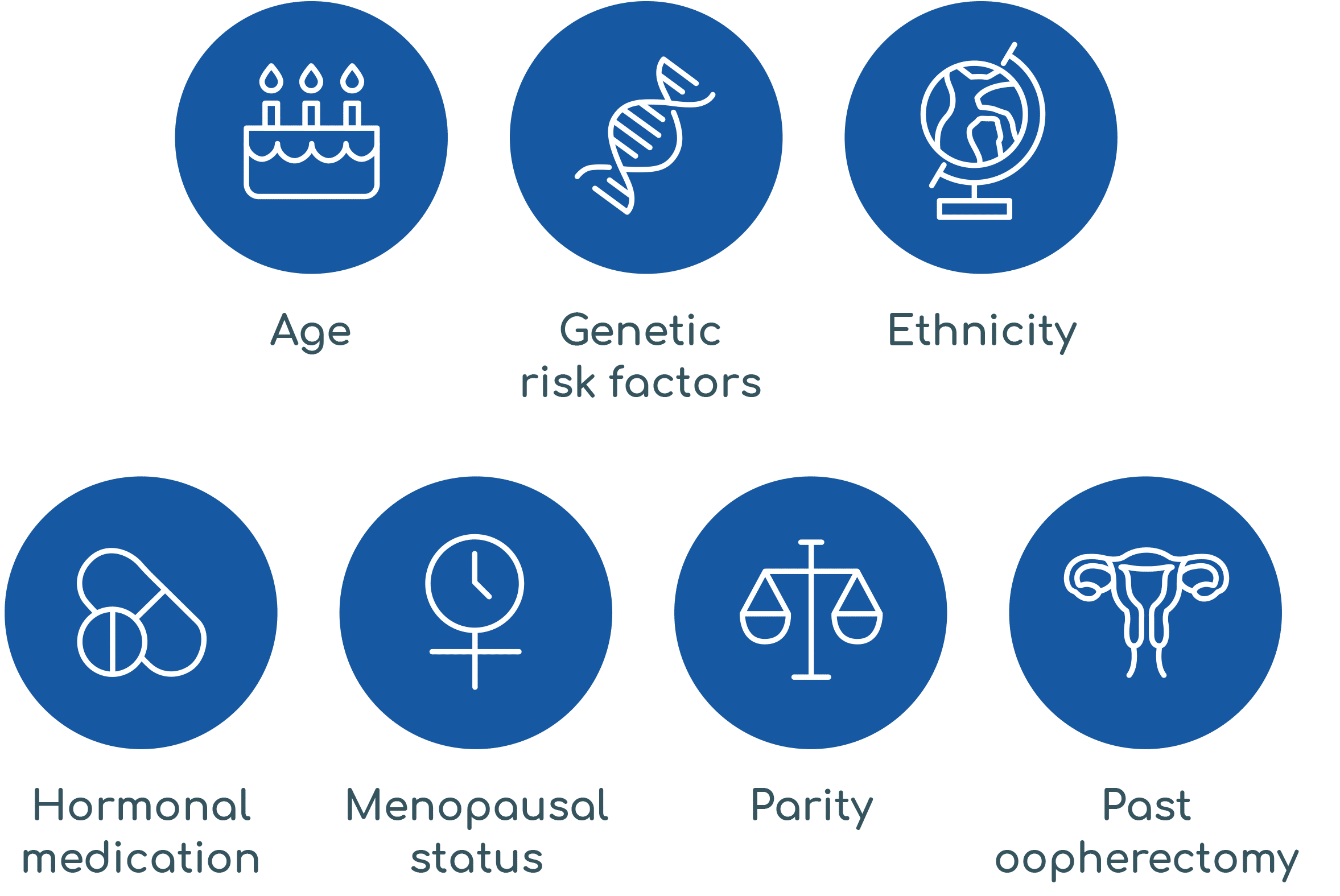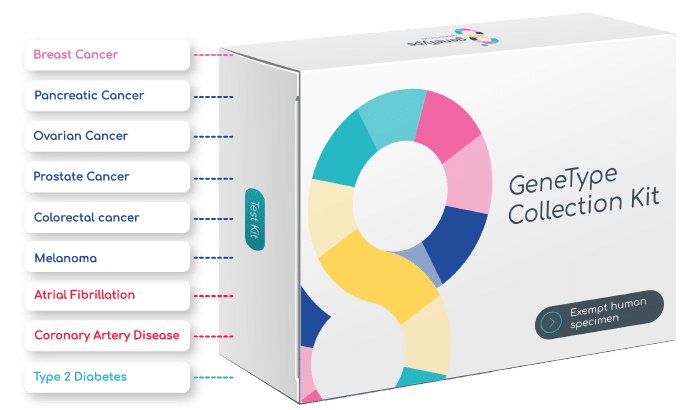Don’t let ovarian cancer go unnoticed
Ovarian cancer often doesn’t lead to noticeable symptoms until late in the disease.
GeneType empowers women by increasing their awareness of the disease.

Family history is an important risk factor, if you have one.
But most of us don’t have a family history of ovarian cancer…
Do you know what
risk factors you carry?

Is geneType for Ovarian Cancer right for you?
GeneType for Ovarian Cancer is for:
- Women
- Aged 30 years or older
- without known hereditary breast and ovarian cancer (HBOC) gene mutation e.g. BRCA1 or BRCA2

Simple, actionable results
GeneType reports help you and your healthcare provider translate your personal clinical, family and genetic data into an actionable prevention health plan.
Your test results include a patient summary to highlight the most important take-home messages.
Sample patient report
Know your risk of ovarian cancer
so you can take action
Speak to your healthcare provider today about geneType.
To order online through our patient portal, follow these four simple steps to be connected with a third-party telehealth provider.

Step 1
Register for your geneType test using our portal.
Depending on the test, you may require access to your medical records (ex. lipid panel or breast density results).
Payment will be collected at time of registration.

Step 2
Your clinical information will be reviewed by our 3rd party telehealth partner, DNA Visit.
If you qualify for testing, a kit will be shipped to your address on file.
If you do not qualify for testing, you will receive a refund.

Step 3
Complete buccal sample collection as instructed and return in pre-paid envelope.
Do not eat, drink, smoke, vape or chew gum within 30 minutes of collection.

Step 4
When your results are ready, you will have the chance to speak with your DNA Visit healthcare provider.
All at-risk patients will be required to speak with the provider prior to results-release.
Have questions? We have answers.
If your question is not shown here, please contact us directly.
Does this test for the hereditary breast and ovarian cancer genes (like BRCA1 or BRCA2)?
No. This risk assessment does not test for hereditary breast and ovarian cancer (HBOC), or any other hereditary cancer syndrome. geneType is a risk assessment for asymptomatic women in the general population who are either ineligible for HBOC testing, or who have come back as negative carriers following HBOC testing.
Will insurance cover this test?
GeneType for Ovarian Cancer combines several of risk factor, such as age, family history, and your DNA markers, into one comprehensive risk assessment.
How old do I have to be to use this test?
GeneType for Ovarian Cancer is for women aged 40 years or older.
Can I order this test if I have already tested positive for HBOC (ie. BRCA1 or BRCA2)?
No. This test is not applicable to women who have a personal history of ovarian cancer or who have already been shown to have an HBOC mutation, for example in the BRCA1 or BRCA2 gene, or a diagnosis of a genetic syndrome that may be associated with elevated risk of ovarian cancer.

*Patient eligibility dependent on personal medical history, age and sex
Interested in ordering more than one disease? Order geneType Multi-Test.
See individual disease pages for more information about each test.
The Multi-Risk suite of tests is for adults 40-85 years of age. At maximum, a woman would be eligible for 8 diseases in the panel; a man would be eligible for 7. Starting at age 30, a patient may qualify for geneType's cancer risk assessments only.
What’s happening?
GeneType Multi-Risk assessments tailored to your needs
It’s not always easy to know what questions to ask your Doctor. Here are some breast cancer risk questions…
Breast Cancer risk – Starting the conversation
It’s not always easy to know what questions to ask your Doctor. Here are some breast cancer risk questions…
Proactive steps for breast cancer risk reduction
Breast awareness is important whether you are 35 or 75. When you understand your risk, you can be a better advocate for yourself…
References
- US Preventive Services Task Force. JAMA 2018;319(6):588–594.
- NCCN Clinical Practice Guidelines in Oncology (NCCN Guidelines®). Genetic/Familial High-Risk Assessment: Breast, Ovarian, and Pancreatic. Version 2.2022 — March 9, 2022.








